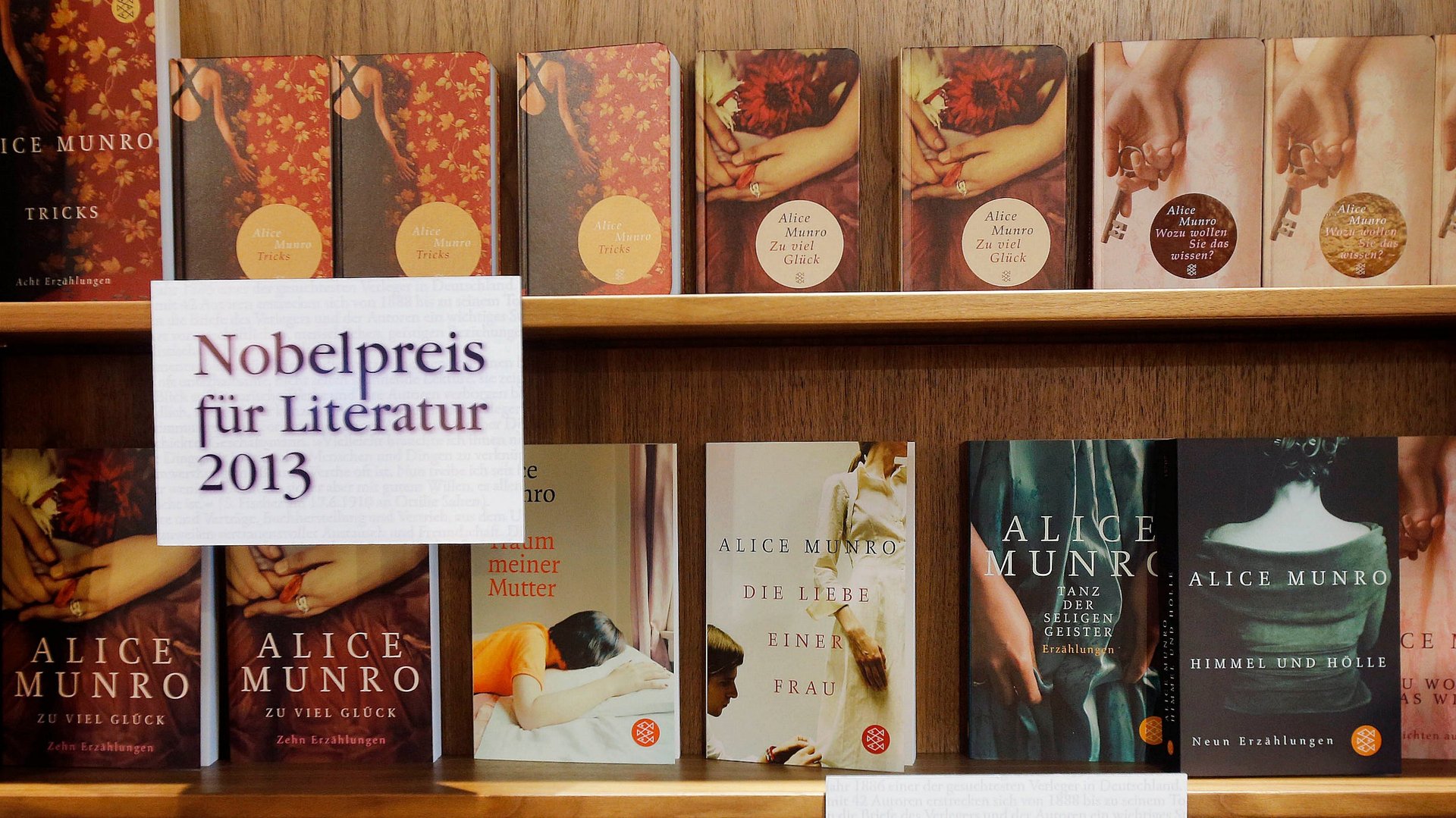Short stories are having a moment, thanks to the internet
Say hello to literature’s new golden child: the short story.


Say hello to literature’s new golden child: the short story.
This morning, Canadian author Alice Munro was awarded the Nobel Prize in Literature. As it happens, the recognition of Munro’s esteemed literary career, which consists almost entirely of short stories, coincides with a growing interest among publishers, writers and readers in bite-sized content. ”I would really hope this would make people see the short story as an important art, not just something you played around with until you got a novel,” Munro said in a statement after hearing the news of her award.
Authors once aspired to write at least one great meaty novel, while most publishers considered the short story a second-class act in the literary world. But smartphones, tablets, and countless other digital devices have divided our attention for creative content and exalted shorter forms.
For evidence, look no further than the rise of digital publishing. The most prominent example is Amazon’s Kindle Singles program, launched in 2011, which has proven popular and lucrative for Amazon and authors alike. The program, which publishes both fiction and nonfiction short enough to be consumed in under two hours, allows authors to pocket up to 70% of royalties, compared to the 8% to 15% traditionally paid for novels. Celebrated authors like Chuck Palahnhuik, Susan Orlean, Amy Tan and Ann Patchett have all signed up to write Singles. “Last year collections like Nathan Englander’s “What We Talk About When We Talk About Anne Frank” and Junot Diaz’s “This Is How You Lose Her” drew both critical praise and good sales,” the New York Times wrote earlier this year. In May, the Times reported that Amazon had sold nearly 5 million Kindle Singles in just over two years since its launch. Roughly 28% of Amazon Kind Single had sold more than 10,000 copies as of May; nearly 8% had sold over 50,000 copies.
Lesser known and first-time authors are also flocking to shorter form. Smaller sites and internet publishers, like Byliner and McSweeney’s, have allowed a range of authors to either feature recent short works or establish a name for themselves by engaging with the growing community of online readers.
But literary critics remain divided about the impact of technology on great works. “There is a time for multi-tasking and a time for losing yourself. The short story offers something else: a chance to pay close attention—and have that attention rewarded because, for once, every little plot twist, every sentence, counts,” editor of the Paris Review Lorin Stein wrote last year. Salon senior writer Laura Miller has argued just the opposite: Authors have always written short stories, and good ones at that. “While 2013 does promise a fine crop of story collections, it is not any finer than last year’s or the year before that or any other year for the past three decades,” Miller wrote. One-off short story successes also don’t guarantee a ticket to literary acclaim, Miller wrote. Collections of short stories “are still regarded by publishers as a long shot.”